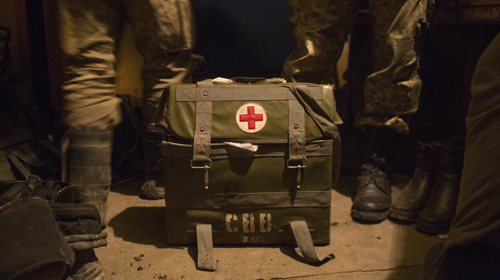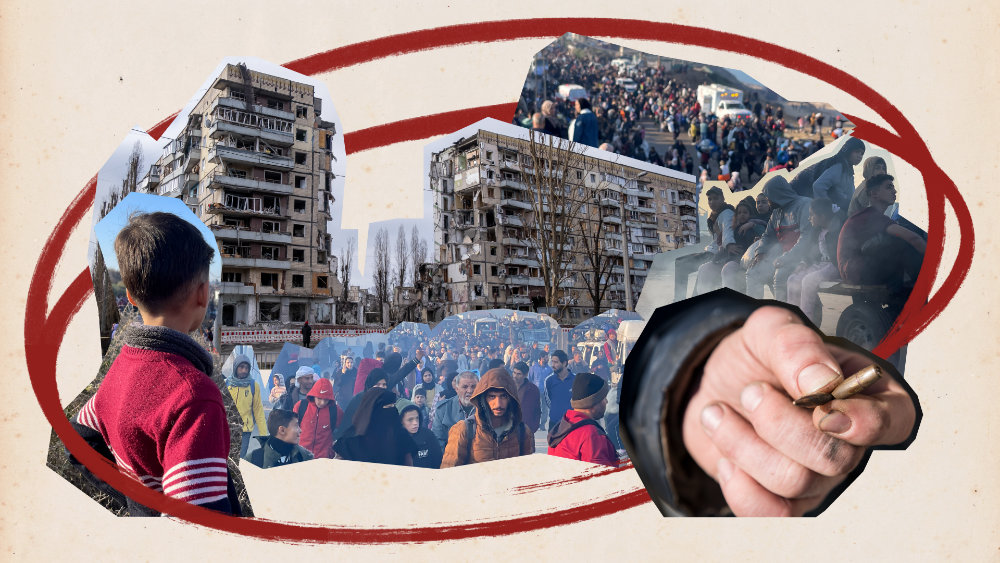The ICRC has recently updated its introductory e-learning course on IHL, featuring additional content, and improvements in the design, pedagogy and interface.
This e-learning course is designed for non-lawyers (such as humanitarian professionals, policy-makers and other professionals interested in the legal framework governing armed conflict).
It aims to provide a general introduction to international humanitarian law (IHL) across key topics. It is divided into 9 self-contained modules for a total duration of 5 hours:
(1) the origins of IHL
(2) the main sources of IHL
(3) conflict classification
(4) the protection of the wounded, shipwrecked and sick, and of medical personnel
(5) the protection of the civilian population
(6) the protection of detainees
(7) the conduct of hostilities
(8) the implementation of IHL
(9) international crimes.
At the outset, a quick test will help users build their individual learning path. Through regular “Knowledge Check” quizzes, users can assess their progress throughout each module. The “Resources” and “Glossary” sections provide additional content and references.
The e-learning is available to anyone as a self-paced course, and is provided free of charge. It will be hosted on Kaya Connect and disasterready.org – two major e-learning platforms for humanitarian professionals (accessible via ICRC.org) – as well as on The International Federation of Red Cross and Red Crescent Societies (IFRC)’s Learning Platform.
The e-learning will be made available in French and Arabic by 2020.
We hope that humanitarian professionals will find this course useful in their practice.
For feedback or questions, please write to: IHLcourse@icrc.org
About the Training Centre
The ICRC Training Centre centralizes on-site training and e-learning modules on international humanitarian law (IHL) and other areas of the ICRC’s work. It reinforces the ICRC’s capacity to reach actors who have an influence on the fate of people affected by armed conflict and other situations of violence, be they arms carriers, civil servants, judges, lawyers, humanitarian practitioners, students, university professors or National Societies.
The online training modules are available to anyone as self-paced courses and are provided free of charge.
The Training Centre offers a modular approach. The foundation course on the basic rules and principles of IHL is complemented by a growing number of thematic modules on specific humanitarian issues.





Dear ICRC
My name is Touch Pheakdey (Tittle as Doctor) working for Cambodian Red Cross and my position is dissemination officer at head quarter CRC. I’m writing this comment because I’m really interesting and would like to improve my knowledge and deeply understanding of IHL to implement and sharing and teaching in my national society. So if possible I would like to suggest you provide any documents or comments for learning IHL to be betters.
Thank you very much !
Best regards,
Dr. Touch Pheakdey
Dear Dr Pheakdey,
Thanks a lot for your interest and good to hear from the Cambodian Red Cross!
I would suggest consulting a few pages such as:
Learning and teaching IHL, which is the main portal: https://www.icrc.org/en/what-we-do/building-respect-ihl/education-outreach
Training centre, where you’ll find all the e-learning modules as well as the courses schedule (download from the right side bar): https://www.icrc.org/en/online-training-centre
Finally there is a one-pager which lists all relevant ICRC resources on IHL. We’re just about to put this one online but for now allow me to share it with you in an e-mail.
Kind regards,
Raphaël
Amazing write-up!
Extremely interesting. Thank you for giving such an informative blog.